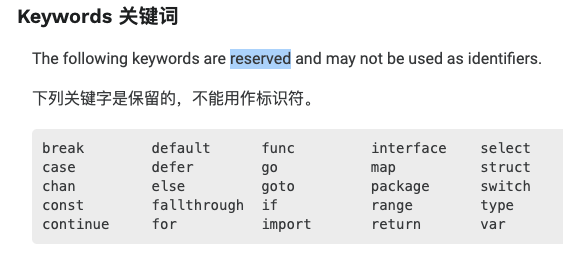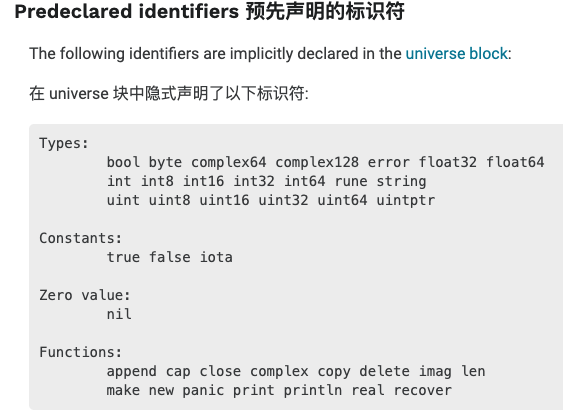标识符与关键字
标识符
在编程语言中标识符就是程序员定义的具有特殊意义的词,比如变量名、常量名、函数名等等。
Go语言中标识符由字母数字和(下划线)组成,并且只能以字母和开头。 举几个例子:abc, _, _123, a123。
关键字
关键字是指编程语言中预先定义好的具有特殊含义的标识符。 关键字和保留字都不建议用作变量名。
Go语言中有25个关键字:
break default func interface selectcase defer go map structchan else goto package switchconst fallthrough if range typecontinue for import return var

此外,Go语言中还有37个 Predeclared identifiers 预先声明的标识符 ¶。
Types:bool byte complex64 complex128 error float32 float64int int8 int16 int32 int64 rune stringuint uint8 uint16 uint32 uint64 uintptrConstants:true false iotaZero value:nilFunctions:append cap close complex copy delete imag lenmake new panic print println real recover


